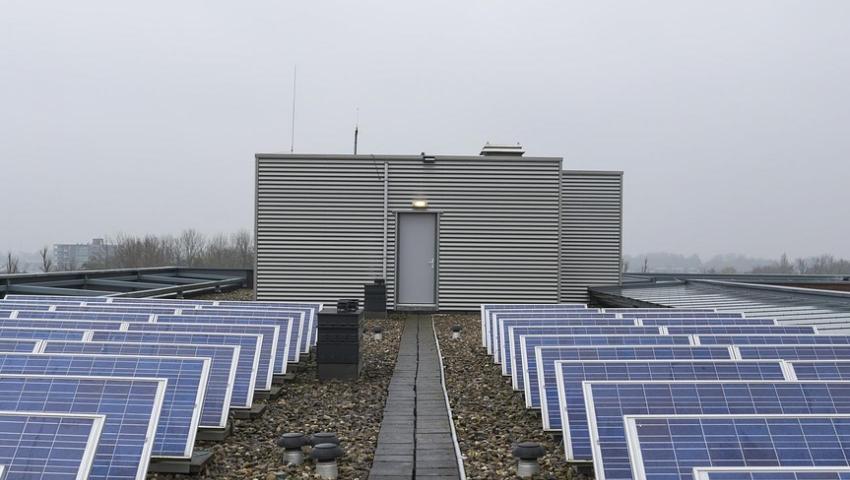The 6,000 MWh battery project is still very unclear and calls into question market liberalization reforms, business said
The creation of a state-owned design company has its own logic only in terms of the possibility to request 100% European funding for the investment in batteries and additional related electricity infrastructure

It is also unclear how energy storage operators will fit into reforms to liberalize the electricity market, the industry said. Source: Pixabay
Raya Lecheva
The project to establish a project company for investments in energy storage systems in the Recovery and Sustainability Plan is very vague, commented for 3eNews Mariana Yaneva, Director of Policy and Communications, Association for Production and Storage and Trade in Energy (APSTE). According to Yaneva, the project has no idea how the proposed new entities - a special project company under the auspices of the Ministry of Energy and the operator / operators of energy storage facilities will fit into the reforms for the liberalization of the electricity market.
This is one of the key large-scale changes in the National Plan for Recovery and Sustainability in the direction of "Low Carbon Economy", which, however, is in no way consulted with the business that works in this area. This is perhaps one of the remarks of the European Commission regarding the plan, because only a few days ago it became clear that its approval is being postponed. According to some public comments, it may need to be reworked again.
In practice, it is almost approved, but the last parameters must be adjusted and the EC must have time to finally approve it, and we must assemble it in its entirety, a high-ranking cabinet official told 3eNews. Only a few days ago, at the government's meeting with business, Prime Minister Kiril Petkov announced the upcoming visit of European Commission President Ursula von der Leyen to Bulgaria next week, during which the agreement is expected to be finally signed.
What is the inconsistency with market liberalization reforms? In the project, business representatives see the concentration of an asset in one structure and the creation of rules of operation that are not based on market signals and it is unclear exactly how to ensure the proclaimed "equal and non-discriminatory opportunity of trade / producer and producers of renewable electricity to conserve the energy they generate and to participate fully and fully in those markets. "
However, is it reasonable for all 6000 MWh to be from only one supplier - a new dependence?
The creation of a state-owned design company has its own logic only in terms of the possibility to request 100% European funding for the investment in batteries and additional related electrical infrastructure. And also to achieve somewhat better financial conditions from the suppliers of energy storage systems, as it matters whether a contract is concluded for 100 MWh or for 1000 MWh. However, is it reasonable for all 6000 MWh to be from only one supplier, which seems to be the intention with regard to the written text, especially in the context of the vulnerability that our current dependence on one natural gas supplier creates? How will the technical characteristics and location of these energy storage facilities be determined? What will be the conditions under which third parties will be able to use their "rental" infrastructure? All questions that are not answered in the text of the project, and they are key so that anyone can even start thinking about a working business model for the implementation of storage systems in the energy market in Bulgaria.
For me, too, the focus on a single service out of the many that batteries can provide continues to be disappointing. Yes, the "shift" in the time of energy from the moment it is generated, but is in surplus for the system in the absence of sufficient consumption, to the moment when there is demand but not enough production, is important because it actually converts renewables in disposable generating capacity, but this is only one of the technological capabilities of the batteries.
The possibility of using batteries more flexibly is neglected to regulate frequency and voltage, to serve as a cold reserve or "black start"
They can make a significant contribution to the flexible management and security of the power system by providing various network services such as frequency and voltage regulation, cold reserve and even a "black start" - the power plant's ability to resume operations without supplying its own external needs and to power part of the network, remaining without tension. In Bulgaria, these services are still provided exclusively by fossil fuel power plants, whose participation in the electricity system should be gradually replaced by carbon-neutral technologies and it is good to have a vision and real work experience with new technologies to plan adequately how this will happen in the next ten years. PVU was a good opportunity to think in this direction, and it is not happening at the moment.
As the project itself points out, in addition to the supply of equipment, a complete revision of the legal and regulatory framework is needed to regulate the construction, connection and operation of electricity storage facilities and their market role.
And so far the location of energy storage facilities is not regulated by law
Currently, apart from one definition in the Rules for Trade in Electricity, there is no line in the legal-administrative framework that regulates the place of electricity storage facilities on the electricity market and network services. I guess that's why the LLP project was written in such a "Jesuit" way, without giving a real idea of how this huge investment will be used by energy market participants. I hope to see concrete proposals in this direction soon, Yaneva commented.
The majority of businesses are waiting for the answers to a number of unclear questions, because the way the reforms are happening is currently creating a feeling of lack of transparency and uncertainty.
